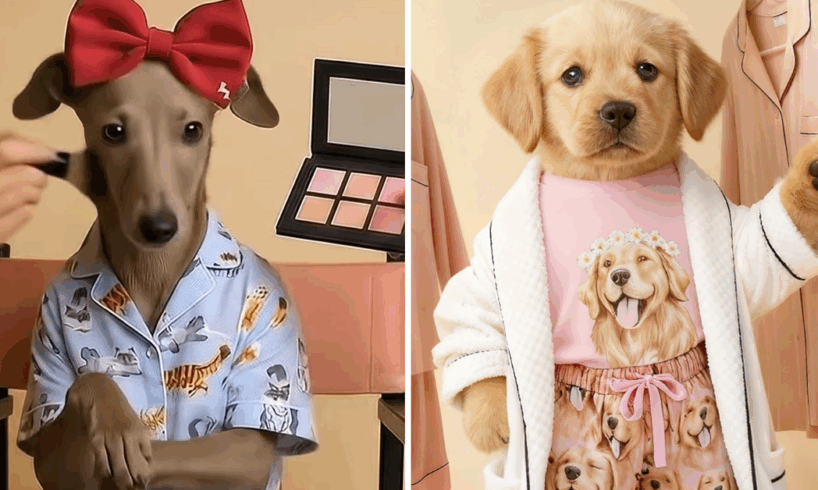
Peter Alexander’s new generative AI marketing campaign may have been met with some consumer backlash, but experts say it’s the future of brand advertising.
The retailer, which reported record sales of $548 million last financial year, called it a “peek into the Peter Alexander universe” using “a bit of AI magic to leave limits at the doggy door” in campaign materials.
And consumer psychologists are telling Australians to get used to it, because this will “absolutely” be the norm in the future.
Posts showing the AI-generated dogs featured in Peter Alexander’s campaign copped plenty of backlash on Instagram. (Instagram/@peteralexanderofficial)
“The key question now isn’t if AI will be used, but how well brands manage to make AI content feel emotionally authentic and human-centred,” University of Sydney Business School lecturer and consumer psychologist Dr Christina Anthony told 9news.com.au.
But some Australian shoppers aren’t buying it.
Many social media users responded to Peter Alexander’s campaign with criticism, questioning the brand’s decision to employ AI over human graphic designers.
Some even swore to boycott the retailer over the campaign.
Consumer psychologist, creative strategist, and Thinkerbell founder Adam Ferrier believes the campaign was a “misfire” but called the backlash “ridiculous”.
“No one cares that much that [Peter Alexander] is creating slightly creepy-looking dogs,” he told 9news.com.au.
He likened the uproar to that over the use of Photoshop in marketing back in the 2000s and said he seriously doubts anyone will actually boycott the brand.
“Advertising has to be incredibly bad, like almost inconceivably bad, to put people off going somewhere and that never happens,” Ferrier said.
“At its worst, it normally evokes a few complaints from a few keyboard warriors, but even that’s not going to really damage the brand.”
9news.com.au has made multiple attempts to contact Peter Alexander – which, like stationery brand Smiggle, is owned by Premier Investments – for comment.
The retailer’s latest campaign leans heavily into generative-AI. (Peter Alexander)
Peter Alexander certainly isn’t the first brand to embrace generative AI in marketing.
In August, J Crew and Vans launched an AI campaign promoting their collaboration, followed by the likes of Guess, Valentino, and Moncler.
Reactions were mixed, with some critics slamming the campaigns as “AI slop” while others called it the future of brand advertising.
How positive the reactions were seemed to depend on how good the AI was.
”At the moment, there are a lot of brands trying to use AI and using it in a really clumsy way that’s getting a lot of ridicule,” Ferrier explained.
“Peter Alexander, they’ve always had a dog in their advertising … but as soon as it comes to life as AI, it looks creepy and weird.”
But when used well, AI can be a powerful marketing tool.
Ferrier has embraced it at Thinkerbell, which recently worked on campaigns for Victoria’s Transport Accident Commission (TAC) and Menulog using generative AI.
There was some blowback but Ferrier predicts Aussies will quickly come to accept AI marketing as it becomes more mainstream.
“It is likely that over time consumers will not react with the same shock or scepticism,” Anthony agreed.
She said brands will also become better at creating ”human-centred” AI content that evokes more positive reactions.
Like, for example, a pyjama campaign with dogs that look a little less “uncanny valley”.
“Consumers expect warmth, playfulness, and a human touch from a brand like Peter Alexander … they don’t want to see a slick AI dog in their ads,” she added.
Experts predict that as generative AI becomes more powerful and realistic, brands will increasingly utilise it to cut costs, increase output, and personalise content at scale.
In some cases, that may be at the cost of human jobs.
And even though some Aussies will continue to protest its use in brand advertising, the blowback is unlikely to hurt most companies’ bottom line.
“People might express frustration or disapproval initially, but unless a strong alternative brand activates their values better, many will continue shopping out of habit or convenience,” Anthony said.
“And most brands won’t abandon generative AI as the efficiencies are too valuable.”





